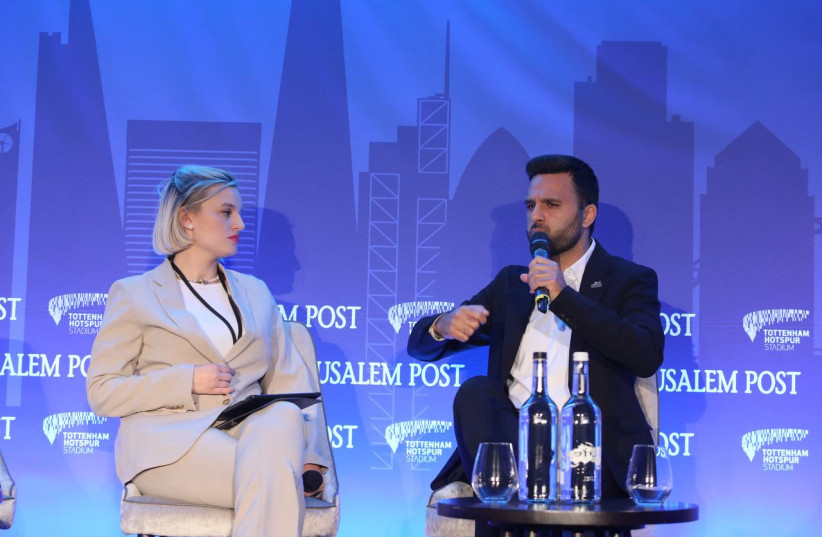Israeli Jews and Arabs needed to work together to fight terrorism as part of a broader effort to integrate and develop the Arab sector in Israeli society, Arab-Israeli activist Yoseph Haddad said at The Jerusalem Post London Conference on Thursday.
“Terrorism doesn’t discriminate between Jews and Arabs that live in Israel. If you are an Israeli it doesn’t matter if you are Jew or Arab – you are a target for terrorism, and that’s why we need to fight it together,” said Haddad, who fought against Hezbollah in the Second Lebanon War as a soldier in the IDF’s Golani brigade.
Haddad praised Amir Khoury as an exemplar of that joint fight. Khoury, an Arab-Israeli policeman, managed to stop Tuesday’s deadly Bnei Brak attack but succumbed to wounds inflicted on him during the gun battle, becoming the terrorist’s fifth fatal victim.
For more panels and interviews from The Jerusalem Post London Conference, click here >>
“His funeral is happening right now in Nazareth, where I come from,” said Haddad.
The activist called for the establishment of a special police unit to tackle violence in Arab-Israeli society, and demanded harsher punishment to stop what he called an “extreme minority.”

“It’s not logical for a person to stab someone and then get one year in prison and go do community service,” Haddad said. “If you hold an illegal weapon, you should get five years in prison. If you punish, you need to make people afraid.
“We saw that some of the terrorists [in the recent attacks] were in prison but got released,” he continued. “Why did these ISIS terrorists get out of prison?”
Haddad also called for broader societal initiatives to counter extremism and close gaps between Arab Israelis and Jewish Israelis.
“When we educate for tolerance, when we educate to negotiate and resolve conflict without arriving at violence, when we educate at a young age about this, we can start seeing something better,” he said.
To create more social cohesion, Haddad advocated for Jews and Arabs to make cultural compromises.
A change has to come from within the Arab community, he argued, particularly among Arab-Israeli leaders.
“It’s easy to point our finger at Israel, but what about our leaders?” Haddad asked. “When they get into the Knesset, they shout about Gaza, Ramallah, Jenin but what about Nazareth, Lod, Acre?”
Haddad praised the change in Arab-Israeli politics, noting that United Arab List’s Mansour Abbas had led his party into the governing coalition, the first Arab party to do so. This led to a greater budget being set aside for Arab Israelis.
“Israel is a Jewish and democratic state. Even the head of the Arab political party, Abbas, said it,” noted Haddad, who said that there still needed to be a greater focus on democracy.
He called for amendments to the Nation-State Law to better emphasize the democratic aspects of the state. He also called for Arabic to be adopted as an official language of Israel, and for all Jewish citizens to learn Arabic. Haddad continued by stressing the importance of mixed Jewish and Arab cities.
